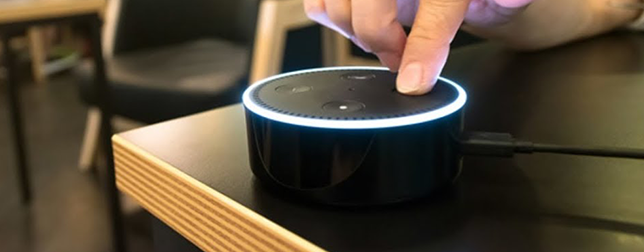Having a smart home can be really fun. You ask the lights to turn on and they turn on. Your voice assistant gives you the weather forecast, lets you watch your favorite show on your TV, lowers the temperature or syncs music across all the rooms in your house. How cool is that?
Read more More People Will Use Smart Speakers Than Wearables This Year
Then you have smartwatches and fitness trackers which provide you with info on how many steps you’ve taken, how much calories burned and how healthy your heart is. Your fitness tracker also helps you have a good night’s sleep and alerts you when your blood pressure is too high.
It seems like our lives have been taken over by smart wearables and smart homes. But which smart devices are we actually using? A recent Adobe Digital Insights analysis looked into sales of more than 55 million products at some 4,500 retail sites to figure this out.
Smart speakers sales have soared partly due to voice command technology, the report says. According to Adobe, such devices accounted 58% of the home speaker market in Q1 2018, up from 28% in 2016. Initially fueled by major brands, we are now seeing some lesser-known brands penetrate this market. In the next year, Adobe expects we will rely more on voice assisted technology such as Amazon Alexa and Google Home.

However, sales of smart TV outshines all! According to the report, 9 out of 10 TV sets sold in Q12018 were equipped with smart technology. These TVs are WiFi enabled or have integrated streaming technology.
On the other hand, other smart devices are lagging behind. Smartwatches have experienced a steady growth over the past few years but their market penetration remains low. Only 1 in 5 watches sold in Q1 2018 were smartwatches. Experts say market share of this category will increase as smartwatches replace fitness trackers as the device of choice for health monitoring.
It seems like consumers aren’t too interested in what color or brightness their light bulbs produce. Market share of smart light bulbs actually decreased slightly over the last year to 11%. Also, smart refrigerators are failing to catch on as well, according to the report.
Read more Pebble Smartwatches Could Get A New Lease On Life After Fitbit Shuts Down Services, Thanks to Rebble
We don’t know where these smart devices will lead us in the future. A study revealed higher smart-device involvement was significantly associated with higher levels of depression and stress but not anxiety. Let’s just forget about the depression and stress part for now, and focus on the smartness of these smart devices. Will the smart devices of the future be so smart that they’d in some instances refuse to follow orders?









